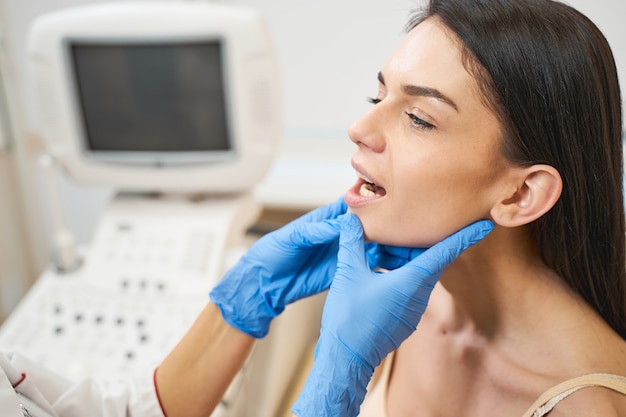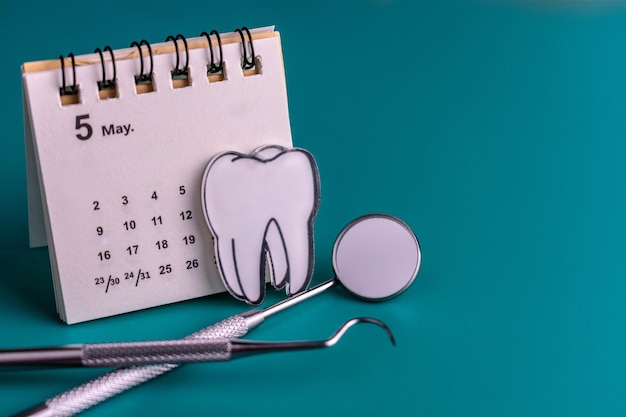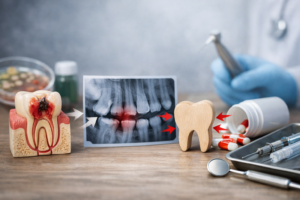Regular dental checkups are essential for maintaining optimal oral health. However, with busy schedules and numerous commitments, it’s easy to overlook that routine visit to the dentist. Despite the hustle and bustle of everyday life, prioritizing dental appointments is crucial for preventing oral health issues before they escalate. But how do you know when it’s time to book a teeth exam? Here are some signs that you’re overdue for a dental checkup.
Why Regular Dental Checkups Are Important
Before we dive into the signs, let’s discuss why routine dental checkups are vital. A dental exam isn’t just about keeping your smile bright; it’s an integral part of your overall health. Regular visits to the dentist provide an opportunity to catch potential issues early on, which can save you time, discomfort, and money in the long run.

During a teeth appointment, your dentist can detect early signs of oral health issues, prevent gum disease, and even identify symptoms of larger health problems like diabetes or heart disease. This proactive approach to oral care is essential for maintaining both oral and systemic health.
Preventive Care
Routine dental checkups allow dentists to catch problems early. This preventive care is a cornerstone of modern dentistry, aiming to stop problems before they require more invasive treatment. A simple tooth cleaning can prevent cavities and gum disease before they become serious issues. Regular teeth cleaning also helps remove plaque and tartar that can’t be eliminated by brushing and flossing alone. By keeping these harmful substances in check, you reduce the risk of tooth decay and gum disease significantly, ensuring that your oral health remains in top condition.
Comprehensive Dental Exam
A general dental checkup involves a comprehensive examination of your teeth, gums, and mouth. This includes checking for cavities, gum disease, and signs of other potential issues. The thorough nature of these exams allows dentists to not only address current concerns but also to anticipate future problems. Early detection can save you from more extensive and costly treatments in the future. By identifying issues like enamel wear or gum recession early, your dentist can recommend preventive measures that are less invasive and more cost-effective than later-stage treatments.
Signs You’re Overdue for a Dental Checkup
If you’re experiencing any of the following signs, it’s probably time to schedule a visit to the dentist. Ignoring these signs can lead to more severe health issues, making it even more important to act promptly.
Persistent Bad Breath
Bad breath, or halitosis, can be a sign of poor oral hygiene or a more serious condition like gum disease. Persistent bad breath can affect your confidence and social interactions, but it’s more than just a cosmetic issue. If you notice that your breath remains unpleasant despite regular brushing and flossing, it could be time for a teeth exam. A dentist can determine whether the cause is something simple like dietary habits or a more serious underlying condition that needs treatment.
Toothache or Sensitivity
Pain or sensitivity in your teeth can indicate a cavity, cracked tooth, or gum disease. These symptoms can disrupt your daily activities, making eating and drinking an uncomfortable experience. If you experience discomfort when eating hot or cold foods, it’s crucial to see a dentist for an assessment. Ignoring this discomfort can lead to more severe dental problems, including infections or abscesses, which may require more intensive treatments such as root canals.
Bleeding Gums
Bleeding gums during brushing or flossing can be an early sign of gingivitis, the initial stage of gum disease. While it might be tempting to dismiss occasional gum bleeding, consistent bleeding can signal serious issues. Without timely intervention, gingivitis can progress to periodontitis, a more severe form of gum disease that can result in tooth loss. Regular dental checkups can help manage these conditions before they become chronic, ensuring that your gums remain healthy and strong.
Changes in Your Mouth
Keep an eye out for any unusual changes in your mouth, such as lumps, sores, or discoloration. These changes can sometimes indicate oral cancer or other serious conditions. Early detection is key in managing these health threats effectively. Your dentist can assess these symptoms during a routine dental checkup. By addressing these issues early, you improve the chances of successful treatment and reduce the risk of complications.
Dry Mouth
A consistent dry mouth can be a side effect of medications or a sign of an underlying health issue. Dry mouth affects your quality of life and oral health, making it uncomfortable to speak or eat. Saliva is essential for washing away food particles and neutralizing acids produced by bacteria in the mouth. A lack of saliva can increase your risk of tooth decay and gum disease, making a dental exam necessary. Your dentist can suggest treatments or lifestyle changes to alleviate this condition and protect your teeth.
What to Expect During a Routine Dental Checkup
Understanding what happens during a teeth appointment can help alleviate any anxiety you may have. Knowing what to expect can transform a potentially stressful experience into a straightforward part of your healthcare routine. Here’s what you can typically expect during a dental checkup.
Dental Cleaning
The first step in a routine dental checkup is usually a professional teeth cleaning. This involves removing plaque and tartar from your teeth and along the gum line. The dental hygienist will also polish your teeth to remove any surface stains, leaving your smile looking brighter. This process not only improves the appearance of your teeth but also enhances the health of your gums and teeth by removing harmful substances that can lead to disease.
Examination
During the general dental checkup, the dentist will perform a thorough examination of your teeth, gums, and mouth. They will look for signs of cavities, gum disease, and any other issues that may need attention. This examination is comprehensive, often including checks for bite alignment and oral cancer screening. X-rays may be taken to get a clearer view of your oral health, providing detailed images that reveal issues not visible to the naked eye, such as hidden cavities or bone loss.
Discussion and Recommendations
After the examination, your dentist will discuss their findings with you and recommend any necessary treatments or lifestyle changes. This personalized discussion is a chance for you to ask questions and understand your oral health better. This may include tips for better oral hygiene, dietary recommendations, or advice on quitting smoking. Your dentist’s recommendations are tailored to your specific needs, helping you maintain optimal oral health between visits.
How Often Should You Schedule a Dental Checkup?
The American Dental Association recommends visiting the dentist at least once every six months for a routine checkup. This regular schedule helps ensure that any issues are caught early, allowing for less invasive treatments. However, the frequency of your dental visits may vary based on your individual needs and oral health condition.

Your dentist can provide personalized advice on how often you should have a teeth exam, taking into account factors such as your dental history, lifestyle, and risk factors.
Special Considerations
Certain individuals may need more frequent checkups. If you have a history of gum disease, frequent cavities, or other oral health issues, your dentist may suggest coming in more often. People with compromised immune systems, such as pregnant women, smokers, and people with diabetes, should also consider more frequent dental visits. These groups are at a higher risk for oral health issues, and regular monitoring can help manage potential problems more effectively.
Maintaining Oral Health Between Checkups
Between dental checkups, maintaining good oral hygiene is crucial. Consistent care at home can significantly reduce the risk of dental problems and enhance the effectiveness of professional cleanings. Here are some tips to keep your teeth and gums healthy:
- Brush your teeth at least twice a day with fluoride toothpaste to strengthen enamel and prevent decay.
- Floss daily to remove plaque from between your teeth, where your toothbrush can’t reach.
- Use an antiseptic mouthwash to help reduce plaque and prevent gingivitis, adding an extra layer of protection against bacteria.
- Limit sugary snacks and drinks to reduce the risk of cavities and maintain a balanced diet for overall health.
- Avoid tobacco products, as they can stain your teeth and increase the risk of gum disease and oral cancer.
Conclusion
Regular dental checkups are a cornerstone of good oral health. They provide an opportunity to maintain your smile and catch any potential issues before they become serious. If you notice any of the signs mentioned above, it’s time to schedule a dental checkup. By staying proactive about your dental health, you can prevent small issues from becoming major problems and keep your smile healthy and bright. Remember, a routine dental checkup is not just about your teeth; it’s about your overall well-being. Taking care of your oral health is an investment in your general health, confidence, and quality of life.

